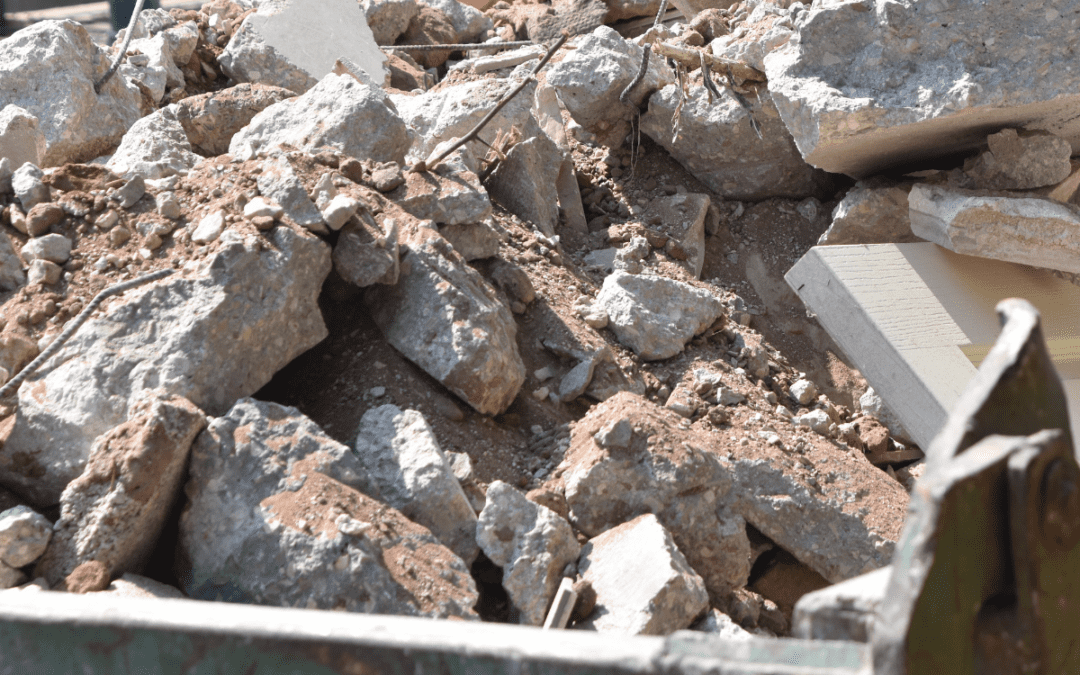Construction waste refers to the materials, debris, and byproducts that result from construction, renovation, demolition, or excavation projects. Such materials can include various types of waste generated during construction processes, for example:
- Hardcore Waste: This includes materials like concrete, bricks, wood, metal, and other building materials that are removed during demolition.
- Construction Materials: Surplus or unused building materials like concrete, lumber, insulation, drywall, roofing materials, pipes, and wiring.
- Packaging Waste: Waste from packaging materials used for transporting and storing construction materials and equipment.
- Hazardous Waste: Chemicals, paints, solvents, asbestos, and other hazardous materials that need special handling and disposal due to their potential harm to human health and the environment.
- Excess Soil and Dirt: Soil excavated during construction or excavation projects.
- Land Clearing Debris: Debris from clearing land for construction, which can include trees, plants, and other vegetation.
Construction waste management is important for several reasons:
- Environmental Impact: Improper disposal of construction waste can lead to environmental pollution, degradation of natural resources, and increased greenhouse gas emissions.
- Resource Conservation: Efficient management of construction waste can help conserve valuable resources by reusing or recycling materials.
- Regulatory Compliance: Many jurisdictions have regulations in place for proper handling and disposal of construction waste to ensure safety and environmental protection.
- Cost Savings: Proper waste management practices can lead to cost savings through reduced disposal fees and potential revenue from recycling and reusing materials.
Construction waste can often be disposed of using skips and is normally arranged at the beginning of a project. However, it’s important to note that not all types of construction waste can go into a skip without considering certain regulations, environmental concerns, and safety considerations. Here are a few key points to keep in mind:
- Permitted Waste Types: Skips are typically suitable for disposing of common construction waste materials like wood, metal, concrete, bricks, tiles, drywall, and non-hazardous general waste. However, hazardous materials like asbestos, chemicals, paints, and other harmful substances shouldn’t be placed in a skip without proper handling and disposal methods.
- Segregation: It’s often a good practice to segregate different types of waste within the skip to facilitate recycling efforts. This can help divert recyclable materials away from landfills.
- Legal and Regulatory Requirements: Different regions and countries have specific regulations governing the disposal of construction waste. It’s important to be aware of and comply with these regulations to avoid fines or legal issues.
- Environmental Considerations: Minimizing the environmental impact of construction waste is crucial. Recycling materials whenever possible helps reduce the demand for new resources and decreases the overall environmental footprint of construction activities.
- Skip Sizes: Skips come in various sizes, so it’s important to choose a size that matches the amount of waste you expect to generate. Overfilling a skip can create safety hazards during transportation and handling.
Skip UK can advise on the most appropriate solution and manage the hire, delivery and collection. Call us today: 01763 252080

